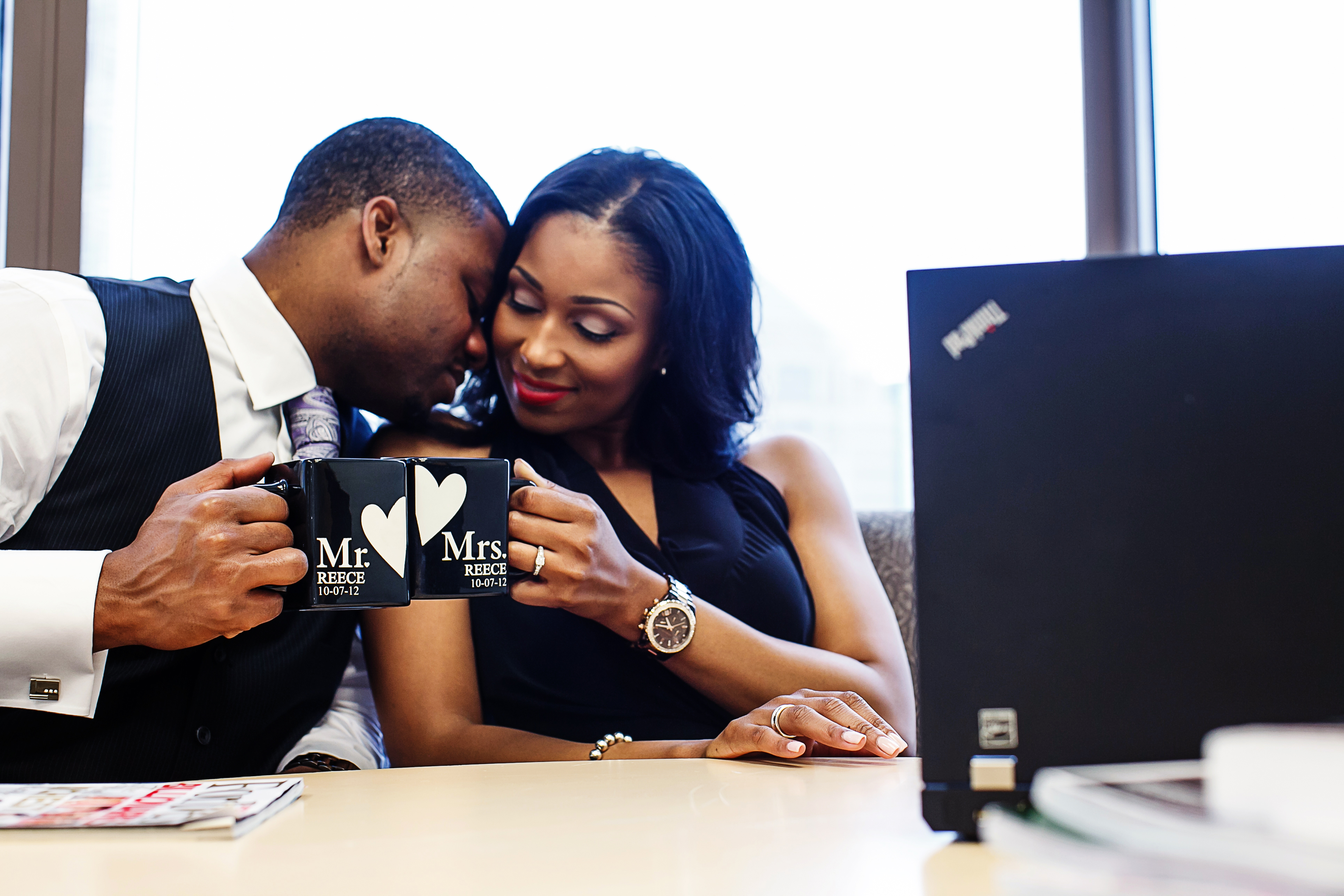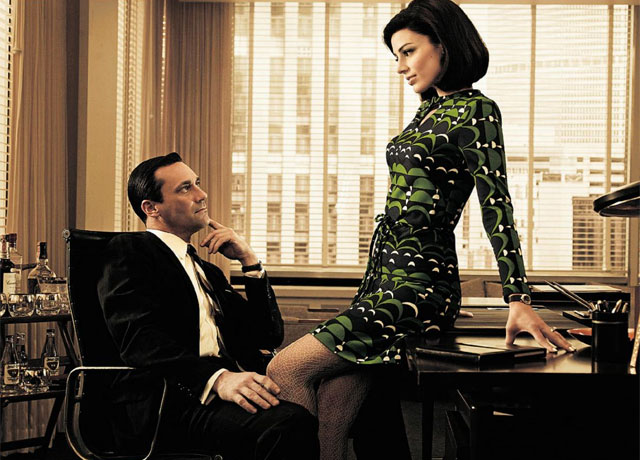
As Valentine’s Day approaches, Vault.com reveals the results of its annual Office Romance Survey, offering a glimpse at what really goes on behind the conference room doors – and the results shine a spotlight on whether age, gender, industry or even marriage plays a role in determining whether a workplace dalliance is worth risking one’s career.
According to this year’s data, 51% of business professionals surveyed say they have participated in some type of workplace relationship – of that number, 42% had an ongoing, yet casual relationship; 36% were involved in a random office hookup; 29% enjoyed a long-term serious relationship with their co-worker; and 16% were lucky enough to meet their spouse or partner at work. And 11% of those surveyed are currently involved in a relationship with a co-worker. Regardless of success or failure, 64% said they would do it again.
But views on Office Romance may be shifting. This year, Vault saw an increase in the number of people who believe that these types of relationships are completely unacceptable at work (6%, up from 5% last year). In addition, the number of people who view any kind of office romance as acceptable has dropped (27%, down from 29% last year). Some respondents believe that it depends on the nature of the working relationship – 33% feel it is unacceptable when it involves co-workers at different levels; 30% find it unacceptable among co-workers who work on projects together; 24% say it’s not OK for co-workers in the same department to develop a relationship; the numbers drop for less close working relationships, such as co-workers in different office locations.

The True Cost of an Office Romance
An office romance does come with the price and it often involves more than just the people who have decided to enter into a relationship together. Here are the numbers:
Workplace Dynamic
- 16% of survey respondents who’ve engaged in an office romance have dated their supervisor
- 23% of them have dated a subordinate
- 26% of survey respondents felt uncomfortable because of co-workers’ intra-office romance
- 32% of survey respondents felt a co-worker gained a professional advantage because of a romantic relationship with a co-worker/supervisor
“The most awkward times are when you are friends with both people and they get in a fight or break up,” said one survey respondent. “It all comes into the office and people are almost expected to take sides. It is really difficult to stay friends with both people because they both focus on the fact that you are still friends with the other person.”
When it came to the idea of a professional advantage, the same respondent believes it may not even happen on purpose, observing, “People just take more interest when they feel like their love interest is getting slighted, and it is hard not to feel like that is favoritism, even if they are the supervisor and have to get involved anyway.”
But another respondent offered a blunter opinion on the use of romance to further one’s career, stating, “You need skills, not kneepads, to be promoted.”

Office Romance…in the Office
- 32% of survey respondents who have had a workplace romance enjoyed a tryst in the office
- 5% of those who had a tryst were caught in the act
The Impact at Home
- 46% of survey respondents have known a married co-worker to have an affair at the office
- 35% of survey respondents have known a married or seriously involved co-worker who had a romantic liaison while on a business trip for the company
- 19% of survey respondents themselves have been involved in an office affair while at least one of the parties was married or in a long-term relationship with another party
- 24% of those who had an affair said it resulted in the end of a marriage/long-term relationship
- 13% of those who had an affair saw it impact their colleague’s career
- 12% of those who had an affair said it affected their own career
One respondent noted, “I felt uncomfortable knowing that a co-worker (married) regularly communicated with another married co-worker. They divorced their spouses, started dating each other and then married. I always felt that the woman co-worker instigated the break-up of the male’s relationship.”
Another professional added, “A manager in my department (not my supervisor, though) had an extramarital affair with his subordinate. He promoted her outside the regular schedule, and to do so, he sidestepped the scheduled promotion of another employee.”

With Age Comes Experience
There are two schools of thought when it comes to age and office romance. It could be that Millennials don’t want to be bothered by the drama of taking their work home with them or it could be that Millennials just haven’t had enough opportunity to enjoy a romantic relationship with a colleague.
According to the survey, the likelihood of a workplace romance increases with age, with 44% of Millennials (18-34) having been involved in one, followed by Generation X (35-49) at 59% and Baby Boomers (50+) at 66%.
But older respondents also lead the pack when it comes to avoiding workplace relationships, with 43% of Boomers having avoided a workplace relationship, followed by Gen Xers at 39% and Millennials at 34%. Boomers only fall behind when those who participated in an office romance were asked if they would do it again – 54% said yes, followed by Millennials at 67% and Gen X at 68%.
Regardless of age, more than half of employees who have engaged in an office romance said they’ve had more than one – 37% of respondents had 2 or 3 office romances, while 16% have had 4 or more such relationships.

The Battle of the Sexes
The nature of office romances differ depending on sex. While women are more likely to have participated in them than men, they are less likely to have engaged in a random hookup, more often looking for a long-term relationship when dating a co-worker.
And, while the data may support the idea of a glass ceiling more than anything else, it reveals that more men date subordinates while more women date supervisors:
- Women (52%) have participated in more office relationships than men (50%)
- Men (22%) have had more random office hookups than women (15%)
- Men (23%) have participated in more ongoing, but casual relationships than women (19%)
- Women (17%) have enjoyed more long-term serious relationships with co-workers than men (13%)
- More women (9%) than men (8%) have met their spouse/partner at work.
- Women (20%) are more likely to date a supervisor than men (13%)
- Men (32%) are more likely to date a subordinate than women (12%)
- Men (39%) are more likely to have a tryst in the office than women (24%)
- Men (71%) are more likely to enter into another office romance than women (57%)

Career Track to Romance
If one of your prerequisites for choosing a job is the opportunity for romance, you may want to enter the hospitality and tourism industry, which ranked highest among industries whereoffice romances are most common, with 61% of employees saying they’ve had some kind of workplace relationship. That places them ahead of consumer products (59%), retail and advertising (both at 58%), government (54%), human resources (53%) and technology (51%).
At the other end of the spectrum, those who work in biotechnology and pharmaceuticals are the least likely to hook up with one another (24%), followed by environment and accounting (both at 27%), internet and new media (33%), law (34%), real estate (35%), and both manufacturing and education (39%).
Regardless of the industry, HR professionals might be more mindful in making sure employees know the policy about dating co-workers. According to the survey, 44% of respondents were unsure if their company had a policy on office dating (30% said their company didn’t have a policy while 27% said they knew of a company policy on workplace relationships). Asked about their employer’s general attitude toward office romance, 22% said their company discouraged office hookups, while 37% claimed their employers were indifferent to the practice. Feedback from the respondents suggests a variety of approaches:
- “A colleague who had a relationship in the office told me that HR was pretty easygoing about it, saying that it wasn’t against policy unless it got in the way of getting work done.”
- “If there is a policy, it’s not clear. There are several folks that have started relationships from working together.”
- “I’m not immediately familiar with our company’s policies about romantic fraternization. However, given that they don’t like us to even organize happy hours, I imagine it must be harshly frowned upon.”
- “The company I worked for had specific rules outlined. We followed the rules and disclosed the relationship as soon as it became serious and we moved in together.”
View more findings from the 2016 Office Romance Survey
About Vault
Vault is the most comprehensive resource for employer, university and internship program rankings, ratings and insight. Vault’s influential rankings and reviews are sourced from directed surveys of professionals and students, and evaluate companies, schools and internships in terms of prestige, best place to work, diversity, quality of life, compensation and other categories. Vault provides users with in-depth information on employers, industries, interviews, and available jobs and internships. In addition, Vault partners with employers to help build their brands and assist with recruiting efforts, and with universities to help their students with employment placement and career selection.
Jay Jay Ghatt is also editor at Techyaya.com, founder of the JayJayGhatt.com and JayJayGhatt.com where she teaches online creators how to navigate digital entrepreneurship and offers Do-It-For-You Blogging Service. She manages her lifestyle sites BellyitchBlog, Jenebaspeaks and JJBraids.com and is the founder of BlackWomenTech.com 200 Black Women in Tech On Twitter. Her biz podcast 10 Minute Podcast is available on iTunes and Player.fm. Follow her on Twitter at @Jenebaspeaks. Buy her templates over at her legal and business templates on Etsy shop!


